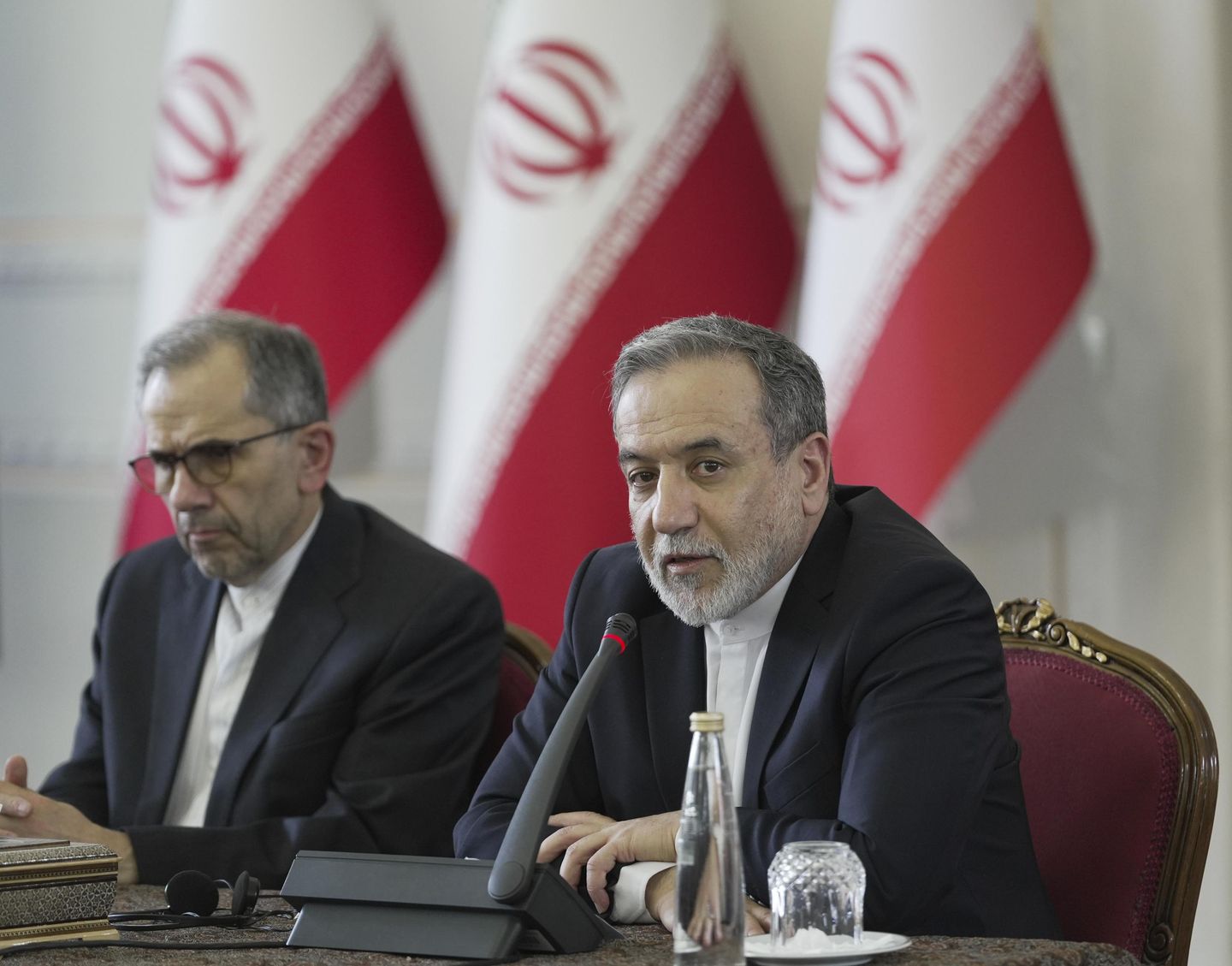
Inspectors from the International Atomic Energy Agency have returned to Iran following a decision by the Supreme National Security Council, Iran’s foreign minister announced Wednesday.
Iranian Foreign Minister Abbas Araghchi told reporters this week that IAEA nuclear inspectors will return to Iran to oversee the refueling process at the Bushehr nuclear power plant, located in southwest Iran.
Mr. Araghchi added that no formal framework has been finalized between Tehran and the IAEA. He also did not give a timeline for when IAEA inspectors would be allowed to investigate enrichment sites damaged during Iran’s June war with Israel and the U.S.
“Under the law enacted by parliament, cooperation with the IAEA is subject to the decision of the Supreme National Security Council. Therefore, all requests from the agency are submitted to the SNSC,” the minister told state-affiliated media.
IAEA chief Rafael Grossi confirmed the return of agency inspectors on Tuesday during an interview with Fox News.
“Now the first team of IAEA inspectors is back in Iran, and we are about to restart,” he said. “It’s not an easy situation, as you can imagine, because for some in Iran, the presence of international inspectors is detrimental to their international security. For some, that is not the case.”
The upcoming inspection marks the return of IAEA inspectors to Iran after nearly two months. Iran’s parliament passed a law in early July that halted cooperation with the agency over citing objections to the IAEA’s Board of Governors report that found the Islamic republic in breach of its non-proliferation duties.
Despite halting nuclear inspections, Tehran has been insistent that it has not completely severed ties with the IAEA. Since the law passed, Iran has held two rounds of talks with IAEA officials to work out a framework for future inspections. Still, the law sparked international outrage, especially from those skeptical of Iran’s nuclear ambitions.
Leaders of France, Germany and the U.K. rebuked Iran’s decision to halt cooperation with the IAEA in July and promised to trigger the “snapback” mechanism of the Joint Comprehensive Plan of Action at the end of August if Tehran could not show progress on a diplomatic solution to its nuclear program.
Wednesday’s announcement follows a relatively uneventful meeting between Iranian and European diplomats in Geneva on Tuesday, where officials discussed the possibility of reimposing U.N.-backed sanctions.
Those sanctions would include a harsh arms export embargo, along with asset seizures and travel restrictions for select Iranian officials.
The Tuesday meeting was the second of its kind after representatives from Iran and Europe met in Istanbul in late July.
It remains uncertain whether Iran’s decision to allow IAEA inspectors back into the country will influence Europe’s choice regarding sanctions by the end of August. After the Tuesday meeting, reports indicated that European diplomats were disappointed in the lack of details provided by Iran.
Ultimately, Europe has demanded that Iran allow IAEA inspectors back into the country, provide transparency on its current nuclear stockpile and provide proof that it’s not building a nuclear arsenal. According to experts, Iran tends to use delaying tactics in diplomatic conversations, a strategy Western officials have grown tired of.
“The Iranian response has basically been ’we can’t show you the highly enriched uranium. Maybe we’ll do something on the IAEA stuff.’ But that’s just not enough,” said Richard Nephew, a senior research scholar at Columbia University’s Center on Global Energy Policy. “While the Iranians are holding back on a lot of the things the Europeans want, and given that if you don’t use snapback, it goes away forever, I think that high bar is something the Europeans are interested in maintaining.”
The deadline for members of the JCPOA to trigger the snapback mechanism is Oct. 18, after which member nations will lose the ability to automatically reimpose U.N. sanctions unless a new diplomatic agreement is reached.
Russia, one of Iran’s key allies, is reportedly circulating a U.N. resolution that would institute a six-month deadline extension for the snapback sanctions. The extension could give Tehran more time to negotiate with the IAEA and prepare for sanctions. Mr. Nephew says the resolution could be just another delay tactic.
“Let’s say it was an extension of snapback by six months, but that snapback could be utilized anytime within those six months. That doesn’t bother me too much,” Mr. Nephew said. “But the problem with the Russian text is what it appears to say is that snapback is now holstered. You can’t use it for six months. I don’t really know why anyone would sign onto that while the Iranians are denying all this access and not cooperating.”














